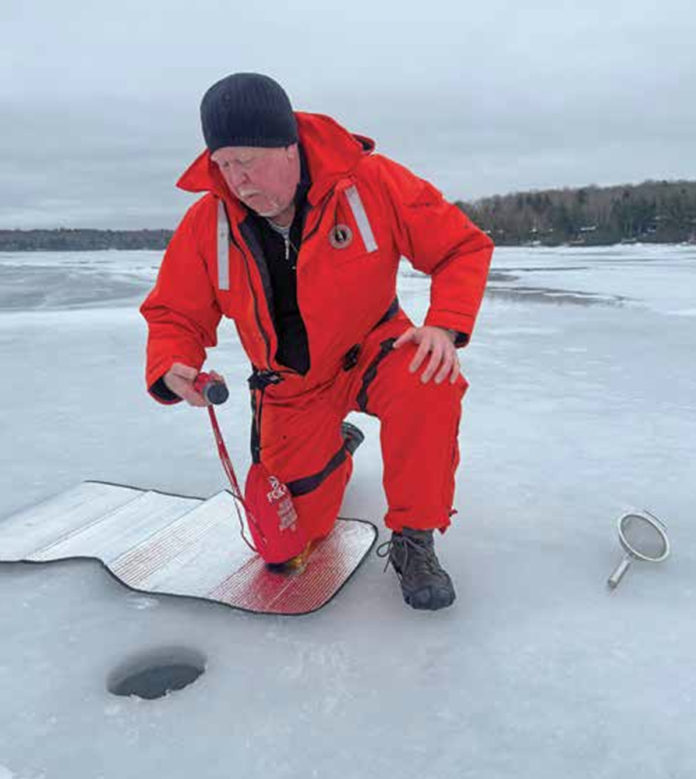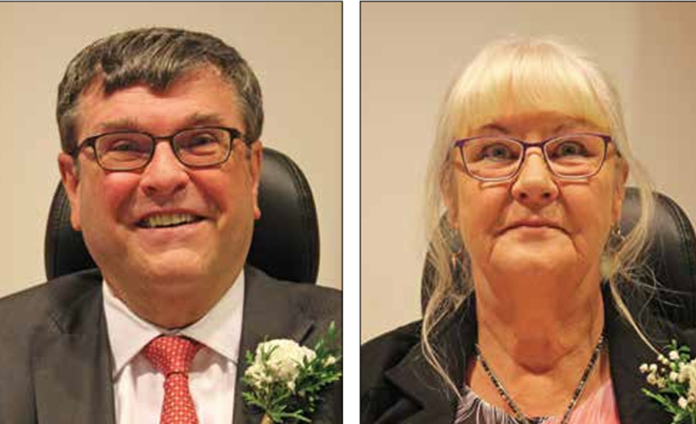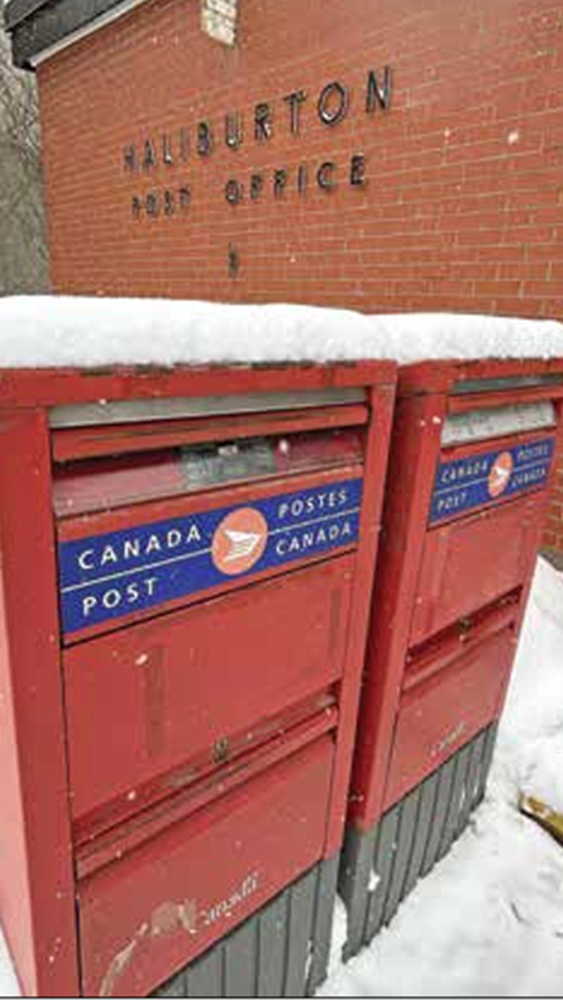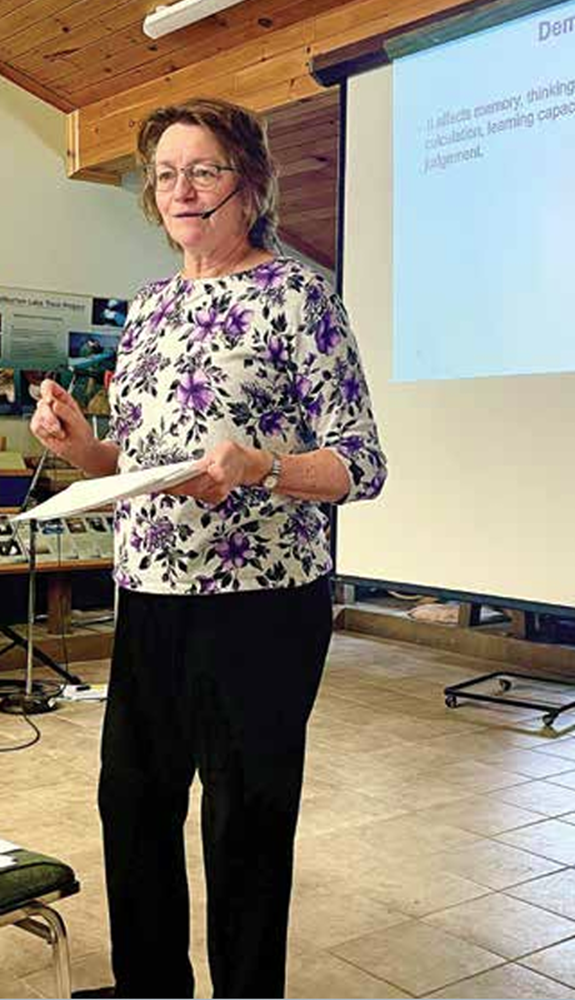After a disappointing performance on home ice Jan. 24, losing 4-2 to the visiting Trenton Golden Hawks, Haliburton County Huskies head coach Jordan Bailey has challenged his team to get back on track and close out this topsy-turvy Ontario Junior Hockey League (OJHL) season with a bang.
The blue and white went into Saturday’s match-up with table-topping Trenton high in confidence, having won 14 of its previous 16 games – including a 4-2 win on the road against the Golden Hawks Jan. 16.
Bailey felt the weekend’s highly anticipated duel in Minden was the Huskies worst performance in weeks.
“I think we knew they were going to come out hard, but we just didn’t match them. It was one of those things we haven’t had in a while – a real stinker, let’s call it,” Bailey said. “We didn’t do a whole lot right. Our powerplay has been really good the past couple months, but it wasn’t [clicking].
“The only thing that really was on point was our penalty kill, which did a good job, and our goaltender Owen Edwards. He was the reason we were able to hang in the game as much as we did,” he added.
While the shot counter had the two teams tied after one, at 15 apiece, Bailey felt Trenton created more dangerous opportunities. After some fine work from Edwards to keep the scores level, Joey Brehmer broke the deadlock for Trenton at 13:41.
Liam Oravsky restored parity early in the second, slotting the puck home at 5:02 for his 16th marker of the season assisted by Isaac Larmand and Kieran Raynor.
Just as it seemed the home side was settling into their game, Trenton hit back with a quickfire double – scoring at 8:36 and 11:41 to put the Huskies in a hole. Bailey feared a runaway score at that point, but Edwards made several key stops to keep Trenton at bay.
The Golden Hawks dominated much of the third, but the Huskies had a chance to put the pressure on five minutes from the end – Chase Del Colombo was awarded a penalty shot after being brought down on a breakaway, though he couldn’t find a way past Colten Drillen-Roach.
The Huskies didn’t give up and were rewarded with their second goal at 18:46 – Oravsky firing into a gaping goal after Drillen-Roach, with the Huskies net empty, gathered the puck behind his net and tried for a goalie goal, but didn’t get enough air on his shot. Trenton added a late empty-netter with two seconds remaining to add gloss to the scoreline.
“We made it close at the end, but I told the guys that we’re not going to beat teams of Trenton’s calibre playing the way we did. You can’t have lulls like that because the top teams will hurt you,” Bailey said.
Huskies 4 Aurora 2
It was a much better performance – and result – for the Huskies Jan. 23 in Aurora, where they tamed the Tigers 4-2. Del Colombo tallied twice for his 12th and 13th goals of the season, with defenceman Luis Sturgeon and top scorer Larmand also finding the back of the net.
Bailey credited young goaltender Carter Nadon, who made 19 saves en route to his third straight win of 2026. U S
“I think we have a great situation that most teams don’t have. We have a 1A goaltender in Owen and a 1B in Carter – they’re both very good goalies and I know we can rely on them,” Bailey said. “I would say it’s a good problem to have… at this point, I would say they’re one of the best tandems in the league.”
Bailey was happy to see some of the team’s depth pieces contributing to the scoresheet – a theme of the season thus far. “Anytime we’re getting that, we’re having a lot of success,” Bailey said.
With 12 games in 29 days to end the regular season, Bailey said it’s an opportunity for his side to build momentum heading into playoffs. They’re currently sitting fifth in the East Division, tied on points with the Newmarket Hurricanes and Pickering Panthers and within reach of the Stouffville Spirit and Trenton at the top of the standings.
“We play a lot of playoff teams over the next month, so there’s still a lot of meaningful hockey to play. It’ll be a great test for our guys… because every game matters,” Bailey said. “We’ve got Newmarket twice, Pickering once, Stouffville twice. So it’s one of those things where we can control our own fate if we’re winning those hockey games.”
The team has a home double header this weekend, hosting the Markham Royals Jan. 31 (4 p.m.) and Newmarket Feb. 1 (2:30 p.m.).











